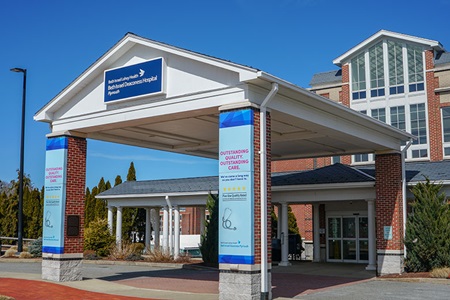What Does Leg Pain Have To Do With the Heart?
Recognizing and Treating Peripheral Artery Disease
You probably wouldn't ignore pain in your chest. But would you dismiss discomfort in your legs? Many people attribute leg cramps to overexertion or aging, but it could be something more serious. One in 20 Americans over the age of 50 is living with Peripheral Artery Disease, or PAD.
What is Peripheral Artery Disease?
PAD is a form of cardiovascular disease caused by plaque buildup in arteries. This buildup reduces blood flow to the arms or, most commonly, legs. A blockage in the leg can also be a sign that there might be a blockage in the heart, and it increases the risk of stroke and heart attack.
“The risk of developing PAD increases with age and other conditions like hypertension and diabetes and with tobacco use,” explains BID Plymouth cardiologist Jill Whelan, MD.
How To Treat Peripheral Artery Disease
Treatment plans can relieve PAD symptoms, improve quality of life, and reduce future health complications. There are many ways to treat and manage PAD and minimize risk factors.
Lifestyle Changes and Medications
PAD is a condition that requires ongoing medical attention. The good news is that patients can manage the symptoms and keep the disease from progressing with these lifestyle changes:
- Stopping the use of all tobacco products
- Eating a heart-healthy diet
- Maintaining an active lifestyle and exercising regularly
- Managing other chronic conditions such as diabetes, high cholesterol, and high blood pressure
In addition to lifestyle changes, doctors often prescribe medications that decrease the risk of stroke and heart attack. These medications:
- Decrease symptoms of PAD
- Improve cholesterol
- Lower blood pressure
- Thin the blood to prevent clotting
Interventional and Surgical Treatments for Peripheral Artery Disease
In some cases, medications and exercise alone are not enough to help patients with PAD. Minimally invasive procedures to repair and unblock the affected arteries are one option for some people. In some patients, surgical bypass treatments may be needed to improve blood flow. Vascular Surgeons at BID Plymouth can provide a consultation regarding surgical care for PAD.
“PAD will often progress, and it’s important to be proactive to avoid development of a wound, or in severe cases, an amputation. With treatment and support, patients can return to an active lifestyle.” said BID Plymouth Chief of Vascular Surgery, Junaid Malek, MD.
Learn more about Heart & Vascular care at BID Plymouth. Call 508-210-5900 to schedule a consultation with a vascular surgeon.




